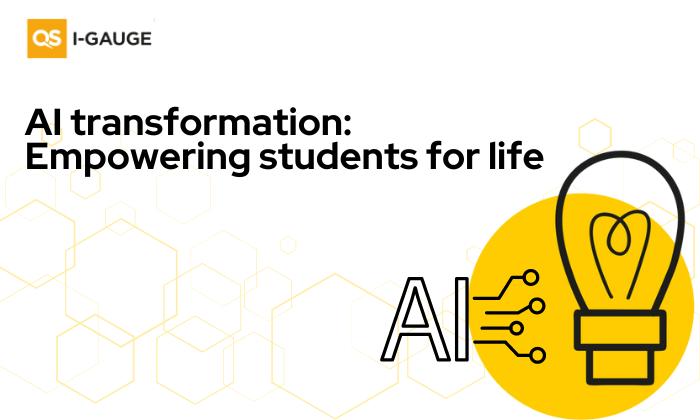
Charting Your Course: The Essential Data Scientist Qualifications Roadmap
In today's data-driven world, the role of a data scientist has become increasingly crucial across industries. From influencing business decisions to driving innovation, data scientists play a pivotal role in extracting insights from vast amounts of data. In this blog, let’s delve deeper into how to become data scientist after 12th.
What is Data Science?
Data Science is an interdisciplinary field that uses scientific methods, algorithms and systems to extract knowledge and insights from structured and unstructured data. It combines statistics, machine learning, data analysis, and domain knowledge to understand complex phenomena. Data science is an integral part of decision-making, forecasting, and problem-solving in various industries.
Why Data Science is a good career option?
Organisations across industries are actively seeking professionals adept at extracting actionable insights from complex datasets to drive strategic decision-making. This high demand translates into abundant job opportunities and competitive salaries for data scientists. Moreover, data science offers a dynamic and intellectually stimulating work environment.
The field of data science also fosters continuous learning and growth, as new technologies and techniques emerge, providing ample opportunities for skill development and career advancement. In essence, data science not only offers financial stability but also the satisfaction of making meaningful contributions to society through data-driven solutions.
Why Become a Data Scientist in 2024?
According to the US Bureau of Labor Statistics, data science is projected to witness a remarkable 23% job growth from 2020 to 2030, surpassing the average growth rates across various professions. This upward trajectory in demand is not limited to the United States alone, as similar global trends indicate a substantial increase in the need for skilled data scientists worldwide.
One of the most appealing aspects of pursuing a career in data science is the potential for financial rewards. In the United States, data scientists can command annual salaries exceeding $120,000. Similarly, in India, experienced professionals in the field can secure salaries upwards of ?15 lakhs (USD 18,750), showcasing the global nature of the demand for data scientists.
Data scientist eligibility
Due to the growing demand for data scientists, there is a pressing need for colleges and universities to be adaptable and quick to respond. This means that the courses they offer, whether they lead to certifications, degrees, or executive-level qualifications, need to match what employers are looking for in the job market.
For traditional data science programs, a fundamental grasp of high school-level subjects serves as the minimum prerequisite. Given that data science integrates principles from computer science, mathematics, and statistics, aspiring learners are encouraged to pursue a degree in one of the STEM (science, technology, engineering, and mathematics) disciplines.
Those who have been exposed to computer programming during their high school years can leverage this knowledge when venturing into data science. Under their proficiency in programming, statistics, or machine learning, learners can excel in implementing practical data science methodologies.
Individuals from non-technical backgrounds, such as business studies, can also pursue relevant data science courses. Thus, anyone holding a degree in business administration, such as a BBA or MBA, is eligible for advanced studies in the realm of data science. These professionals are poised to assume executive roles, overseeing tasks like generating CRM reports and conducting business-related data quality assessments (DQA).
Data Scientist Qualifications
For those aspiring to enter the field of data science, specific prerequisites and competencies are vital:
Educational Background: Obtaining a degree in a STEM discipline lays a robust foundation.
Mathematics: Fundamental to machine learning, data analysis, and data science, mathematics encompasses algebra, statistics, calculus, differentiation, probability, arithmetic, and geometry.
Statistics: Mastery of statistics enables individuals to comprehend, analyse, and derive conclusions from data effectively.
Data Visualization: After data retrieval, visualization plays a critical role. Utilizing tools like R and Tableau facilitates the presentation of insights in a compelling manner.
Exploratory Data Analysis: This involves delving into Excel and databases to extract valuable insights, understanding data attributes, and identifying patterns.
Hypothesis Testing: Applied in case studies to formulate and validate hypotheses, addressing real-world business challenges.
Programming Languages: While not mandatory, proficiency in programming languages such as Python, Java, and Scala proves advantageous for learners in data science.
Database Management: A robust grasp of database fundamentals enhances proficiency in data science methodologies and practices.
Conclusion
In conclusion, embarking on the journey to become a data scientist is a dynamic and rewarding pursuit that promises a world of possibilities in the era of data-driven decision-making. Remember, the field of data science is not static; it evolves alongside technological advancements and industry demands. Therefore, staying agile and adaptable is key.
Disclaimer
The views and opinions expressed in this blog do not necessarily represent those of QS-ERA India Private Limited and/or its employees, partners, shareholders, or other stakeholders.







Leave Your Comments